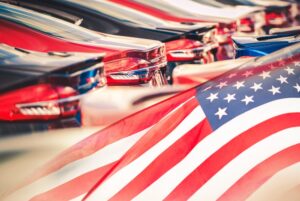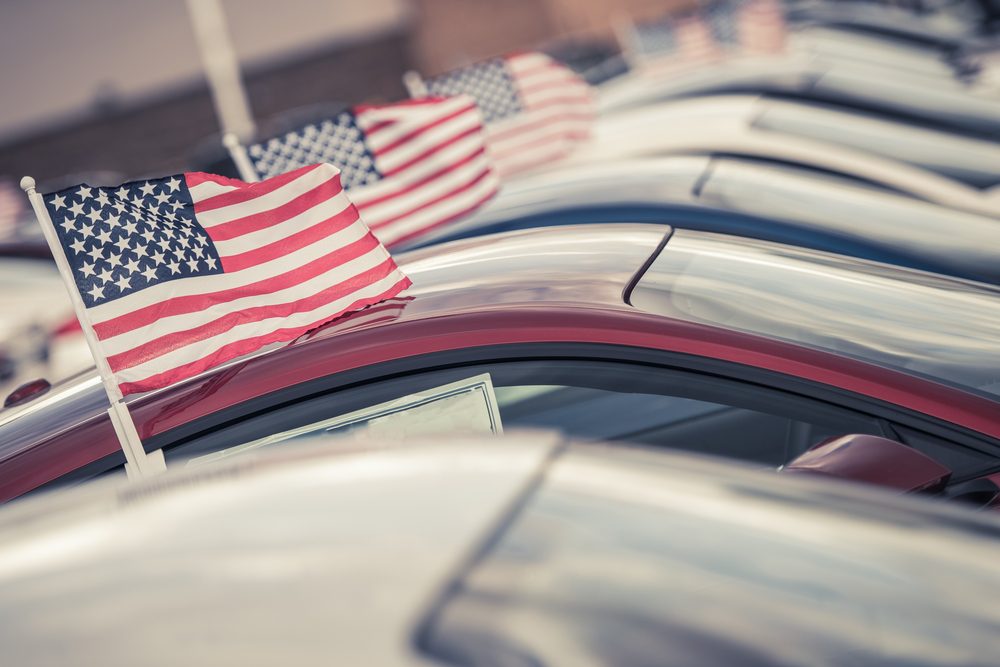Topsy-turvy: that’s how car sales can be summed up for 2020. But according to a Cars.com survey in late August, the coming weekend is expected to be another high-volume period for the auto industry. What’s typically one of the busiest sales weekends of the year could see September numbers start out very strong.
Zo Rahim, manager of economics and industry insights at Cox Automotive, said in September 2019, “On average, the week including Labor Day weekend accounts for over 2% of yearly new retail sales making it one of the busiest weeks of the year along with Memorial Day weekend and the 4th of July.” Although that was pre-COVID, the high-purchase intent revealed in the Cars.com survey indicates that trend will continue this year.
Data in the survey shows that intent to purchase on Labor Day weekend among in-market car shoppers is at 51 percent. Of those surveyed, nearly two in three have pulled their vehicle purchase timeline ahead because of COVID-19.
The style of vehicles that shoppers intended to buy has also swayed. Interestingly, “41 percent of shoppers are in the market for sedans, more than any other body style, followed closely by SUVs/crossovers (39 percent).”
 Factors for Labor Day Car Sales
Factors for Labor Day Car Sales
This year, Labor Day car sales are being driven by three specific – and often overlapping – markers among active shoppers. All are related to COVID-19, but it might be the start of a long-term trend rather than a flash in the pan.
Virus Concerns Remain High
The Cars.com research discovered that more than half of the in-market shoppers surveyed planning to buy a car this Labor Day weekend were motivated at least in part by ongoing concerns about the coronavirus pandemic. That isn’t a surprise to anyone, and digital retailing tools are expected to play a role.
Of those surveyed, half plan to use online and digital tools in their shopping experience, 43 percent said they would set up virtual appointments and use video walkarounds, and 48 percent “plan to use a home-delivery option from their local dealership.” It all indicates that health and safety are still quite influential.
Increased Demand in a New Generation of Buyers
The pandemic has also attracted unlikely car buyers – urbanites who previously did not own a car.
Kelsey Mays, senior consumers affairs editor for Cars.com, says, “We have tracked consumer sentiment about car buying and travel habits during the pandemic for months now — and our findings continue to show that more and more people are turning to car ownership because of the safety and freedom it provides. And, interestingly enough, this new generation of buyers – many who previously did not own a car, particularly in urban areas – are looking at sedans over the typically popular SUVs or crossovers as their vehicle of choice.”
Continued Intent for Road Travel
Not surprisingly, flights are only 47 percent full compared with 88 percent just a year ago. Americans insist on travelling, though, and intend to do so by car this Labor Day weekend. 60 percent of Americans plan to travel this weekend with nearly half planning to be gone for the full weekend, and 88 percent of travelers are planning to do so by vehicle.
Dealers can make the most of the Labor Day weekend in 2020 as more than half of car shoppers plan to wrap up their buying experience. Since intent is high and vehicle inventory for both new and used is relatively thin, holding higher gross profit averages should be a target. As well, the new-to-ownership buyers and the regular travelers are an excellent opportunity for higher penetration for protection items in the F&I office.
Did you enjoy this article from Jason Unrau? Read other articles from him here.


While you’re here, don’t forget to subscribe to our email newsletter for all the latest auto industry news from CBT News.








